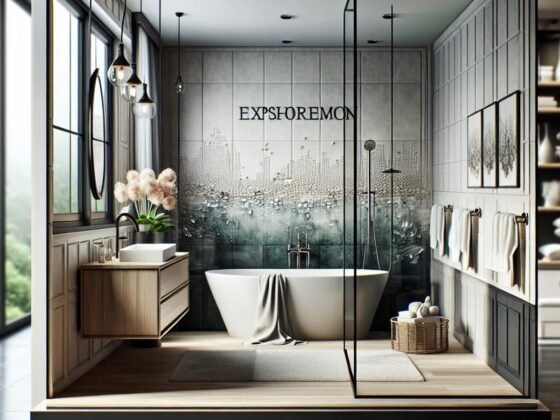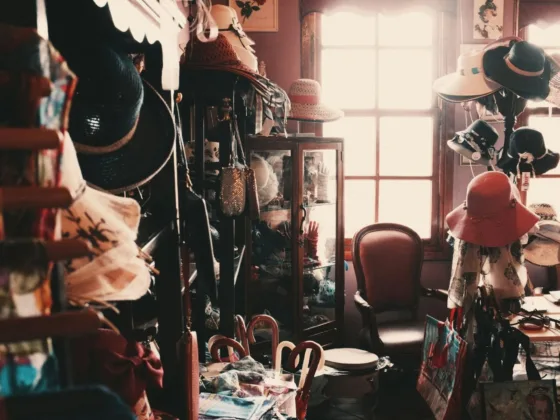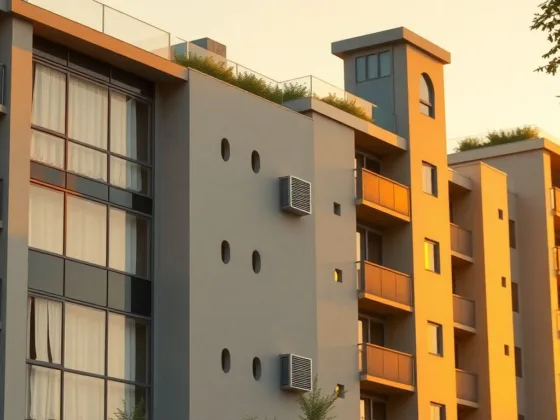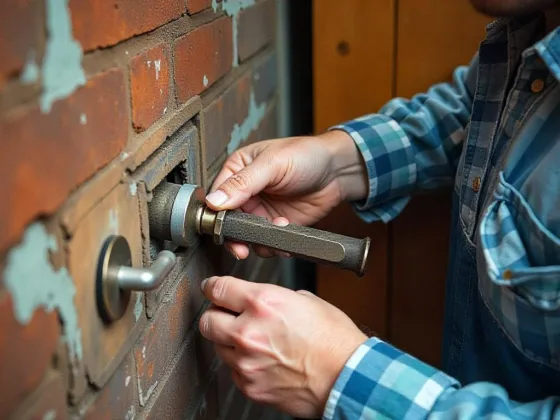Table of Contents Show
For wine enthusiasts, a home wine cellar is an ultimate dream. It’s a great way to further their hobby and learn more about the art of wine. However, designing a home cellar is a complex process and requires the right tiles for construction.
So ensure you only deal with a reputable floor tiles retailer to prevent getting faulty tiles that might cause structural damage in the long run.
What is a Wine Cellar?

A wine cellar is a storage space for wine bottles and casks. It is used to protect wine from external factors such as light, humidity, and temperature. They are a common feature in modern homes and wine enthusiasts. Besides their aesthetic appeal, wine cellars are helpful for preservation.
Wines are perishable, lasting between two and five days after opening a bottle. The liquid turns from a rich burgundy tone to a flat brown, and the fruity flavors fade. Wine is also sensitive to temperature fluctuations – high temperatures cause the chemicals to break down, causing it to lose its flavor.
Wine cellars are a convenient way to store wine systematically. You can even label and record an inventory complete with categories. Lastly, wine cellars increase your property’s value. This is because wine cellars are a symbol of prestige.
Proper Conditions for a Home Wine Cellar
There are two types of wine cellars:
- Active-cooled: These cellars are equipped with climate control systems that automatically regulate temperature and humidity levels.
- Passively-cooled: These cellars do not have automated climate control and are typically built underground to naturally guard against temperature fluctuations.
Climate-regulated home wine cellars are superior in maintaining and improving the flavor and composition of wine as it ages. Below are essential factors you should consider when constructing a wine cellar.
1. Vibration
Vibration causes sediments to not settle at the bottom of the bottle, disrupting the aging process. This ruins the wine’s flavor and can compromise its quality over time.
- Impact on Aging: Constant movement prevents the natural settling of particles, leading to a cloudy appearance and altered taste profile.
- Sources of Vibration: Everyday household activities, nearby appliances, or even traffic vibrations can affect your wine if not properly managed.
2. Temperature
The most appropriate temperature to store wine is between seven to eighteen degrees Celsius. However, for optimal maturity and improved flavor, experts recommend temperatures between ten to fourteen degrees Celsius.
- Consistency is Key: Fluctuations in temperature can cause the liquid to expand and contract, potentially pushing the cork out or allowing air in.
- Wine Types: Red wines generally benefit from slightly warmer storage within this range compared to white wines.
3. Humidity
Wine is extremely sensitive to humidity. Low humidity causes the natural corks to wither and allow air to seep in; on the other hand, elevated humidity levels cause mold growth on the corks.
- Optimal Range: The best humidity range is between fifty to seventy percent.
- Cork Preservation: Proper humidity ensures that corks remain moist enough to provide a tight seal yet dry enough to prevent mold.
4. Light
When wine comes into contact with direct sun rays, it reacts with chemicals within the bottle, causing it to spoil. That’s why wine bottles are often heavily tinted.
- Ultraviolet (UV) Light Damage: UV light can break down organic compounds within the wine, leading to premature aging and off-flavors.
- Storage Solutions: Use dim lighting in your cellar and avoid fluorescent bulbs; consider UV-resistant glass for windows if natural light can’t be avoided.
Factors Influencing Flooring for Home Wine Cellars
Weight of the Wine Bottles
When selecting a flooring material for your wine cellar, consider its ability to withstand the cumulative weight of all the bottles. Wine collections can be quite heavy, and if the material is brittle, it might crack or even collapse, potentially affecting your house’s foundation. Opt for flooring materials known for their high load-bearing capacity.
Humidity Barrier
Wine is sensitive to humidity variations, making it essential to choose a flooring material that provides an effective humidity barrier. Humidity control isn’t just about preserving your wine; water vapor can also cause structural problems with your wine cellar. Materials that resist moisture and create a sealed environment are crucial to maintain optimal conditions.
Don’t Install Carpeting
Wine cellars require a humidity level between fifty to seventy percent. While this range is ideal for wine preservation, it can cause mold growth on carpets. Additionally, wine spills may damage carpet fabric beyond repair. Therefore, it’s best to avoid carpeting in your wine cellar altogether.
Durability
A good flooring material should be resistant to various elements such as humidity, dirt, and wine spills. You want a material that can withstand these conditions without degrading over time. Consider options like stone or tile, which offer both durability and ease of maintenance.
Key Considerations:
- Resistance to Moisture: Choose materials that do not absorb water easily.
- Ease of Cleaning: Select flooring that can be cleaned effortlessly in case of spills.
- Longevity: Opt for materials known for their long life span under varying conditions.
By focusing on these factors, you can ensure that your wine cellar’s flooring will contribute to both the longevity of your collection and the structural integrity of your cellar space.
Different Types of Flooring for Home Wine Cellars
Below are some of the common flooring materials for home wine cellars.
1. Wood
Wood is a popular material for cellar floors. Most wine cellar owners use hardwoods, such as Brazilian Cherry and Walnut.
- Brazilian Cherry: Known for its rich color and durability, Brazilian Cherry adds a touch of elegance to any wine cellar.
- Walnut: Offers a beautiful dark finish and is resistant to wear and tear, making it an ideal choice for a long-lasting floor.
Note: While wood can create a warm and inviting atmosphere, it’s important to treat it properly to resist moisture and potential mold growth.
2. Tile
Tiles come in varying patterns and color options. They are also resistant to scrapes and scratches.
- Ceramic Tiles: These are cost-effective and easy to clean, making them a practical option.
- Porcelain Tiles: These provide higher durability and resistance to moisture compared to ceramic tiles.
- Mosaic Tiles: If you’re looking for something decorative, mosaic tiles offer intricate designs that can enhance the aesthetic appeal of your cellar.
Key Benefits:
- Easy maintenance
- High durability
- A wide range of design options
3. Stone
Stone is a versatile option for wine cellar floors. It comes in diverse varieties such as marble, brick, and slate, and doesn’t stain.
- Marble: Offers a classic, high-end look that can elevate the overall appearance of your wine cellar.
- Brick: Provides a rustic charm while being extremely durable.
- Slate: Known for its non-slip surface and resistance to stains, slate is both practical and stylish.
Advantages:
- Natural resistance to staining
- Excellent durability under various conditions
- Enhances the aesthetic value of the space
By considering these different types of flooring materials, you can choose one that best suits your needs and enhances the beauty and functionality of your home wine cellar.
Why Choose Tiles for Your Home Wine Cellar
1. They Are Durable
Tiles are resistant to scratches and can withstand large amounts of pressure. They are also hard to break. Suitable tiles can last for twenty years and longer if well-maintained. Besides, they are easy to replace and are relatively affordable to maintain.
2. Affordability
Tiles are a cost-effective solution for cellar floors, unlike materials such as expensive hardwood. They vary between one to twenty dollars per square foot, which is affordable for most homeowners.
3. They Are Resistant to Temperature Fluctuations
Tiles make excellent flooring materials for wine cellars because they don’t react to changes in humidity. They also aren’t susceptible to mold growth. However, ensure you use glazed tiles. Unglazed ones allow water to seep through and could compromise your home’s foundation.
FAQs (Frequently Asked Questions)
A wine cellar is a storage space for wine bottles and casks.
There are two types of wine cellars: Active-cooled and Passive-cooled. Active-cooled cellars use a refrigeration unit to control temperature and humidity, while Passive-cooled cellars rely on the natural environment to maintain proper conditions.
The weight of the wine bottles, humidity barrier, and durability are important factors to consider when choosing flooring for a home wine cellar.
Common flooring materials for home wine cellars include wood, tile, and stone.
Tiles are durable, affordable, and resistant to temperature fluctuations, making them an excellent choice for wine cellar floors.










